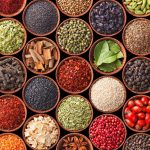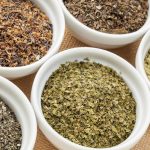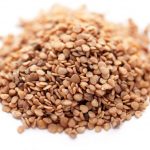
Rehmannia – sources, health benefits, nutrients, uses and constituents at NaturalPedia.com
Saturday, September 02, 2017 by Rhonda Johansson
http://www.naturalnewsherbs.com/2017-09-02-rehmannia-sources-health-benefits-nutrients-uses-and-constituents-at-naturalpedia-com.html
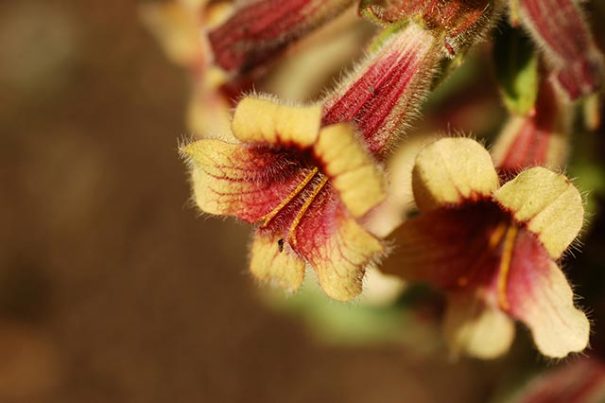
It doesn’t take much of an imagination to pervert the appearance of the rehmannia. The perennial plant looks similar to the foxglove and has flowers that remind the casual observer of swollen lips. Rehmannias are also mostly pink or reddish in hue. Some are even covered in thin, bristly hair-like follicles. Striking in its own way, it seems exceedingly apt then that the plant, and its root system, is used to enhance general energy, including improving sexual intensity.
The adaptogenic blood tonic has been used by traditional healers in China, Japan, and Korea for thousands of years. The Chinese, in particular, are fond of prescribing the herb to maintain the functions of the heart and liver. Rehmannias are called gan di huang or sheng di and are mainly cultivated in the Henan and Zhejiang provinces. What makes the plant somewhat different from other Chinese traditional medicine is that it is able to nourish both the yin (female aspect) and yang (male aspect) of the body. Rehmannias are cold in nature, which generally treat conditions caused by excessive heat (fever, bleeding, etc). However, the plant also influences sexual energy; a generally perceived yang-controlled condition. The medicinal interplay of the herb makes it a much-loved treatment for herbal doctors.
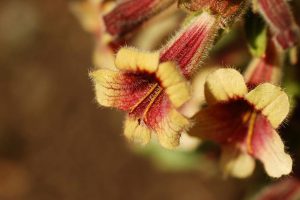
List of known nutrients
- Aucubin
- Acteoside
- Benzoic Acid
- Beta-sitosterol
- Campesterol
- Catalpol
- Echinacoside
- Glutinoside
- Iron
- Jioglutoside
- Melittoside
- Rehmaglutins
- Rehmanniosides
Medicinal uses for rehmannias
As a preventive measure, rehmannias are used to improve general energy. The plant can be taken with other adaptogenic herbs such as the Indian sarsaparilla and bupleurum to hinder the breakdown of cortisol (the stress hormone) in the body. Patients who regularly take rehmannias note a significant improvement in their overall health; showing greater capacity of dealing with the negative effects of excess stress.
Rehmannias are also included in sexual enhancement products. The herb should be taken regularly for around two to four days for visible results to show, but herbalists say that rehmannias are powerful aphrodisiacs.
As a treatment for acute symptoms, rehmannias suppress various autoimmune diseases such as lupus, rheumatoid arthritis, multiple sclerosis, and fibromyalgia. The plant is considered to be one of the best treatment herbs for diseases that affect the kidneys and adrenal glands. Rehmannias are able to reduce associated conditions of these illnesses, including joint pain and swelling.
Rehmannias may be used to lessen the severity of asthma and urticaria (hives) symptoms. One study suggested the plant’s use in reducing mild edema caused by an overproduction of adrenocortical hormones.
Chinese healers use the herb to reduce the amount of heat in the blood (and thus balance the yin). Indications of too much body heat include skin eruptions, nosebleeds, and certain febrile conditions.
Other conditions that rehmannia can treat include impotence, hair loss (alopecia), and painful menopausal symptoms.
Body systems supported by rehmannias
The plant plays an important role in healthy kidney, liver, and heart function. Rehmannias are able to regulate hormone production and lessen the damage caused by stress. Consequently, rehmannias show promise as an advantageous adaptogen.
Ways to use rehmannias
Rehmannias have a mild and sweet flavor. This makes it an easy-to-take and palatable tea. Most herbal stores sell the plant as dried powder — you would be hard pressed to find a grocery that sells fresh rehmannias. In any case, make sure that you source the herb from a reputable place and steep a few grams in a cup of boiling water. The tea can be taken regularly and on an empty stomach. Discontinue taking it if you begin to experience any form of gastrointestinal discomfort.
Where to learn more
- 8 Best Herbs for a Healthy Kidney
- In search of Ebola cures: Chinese medicine, western herbs, sanitizing chemicals and immune boosting strategies
- Clear vision: Two principles for eye rejuvenation
- How to lower FSH levels and improve fertility (Opinion)
- Chinese herbs prevent hair loss & stimulate natural hair restoration without the need for baldness drugs
Summary
Rehmannias are powerful adaptogens that can be taken regularly to improve energy levels as well as enhance sexual function. The plant may also be used to treat various autoimmune diseases, particularly those that affect the liver and kidneys.
Sources include:
Tagged Under: Tags: Rehmannia


